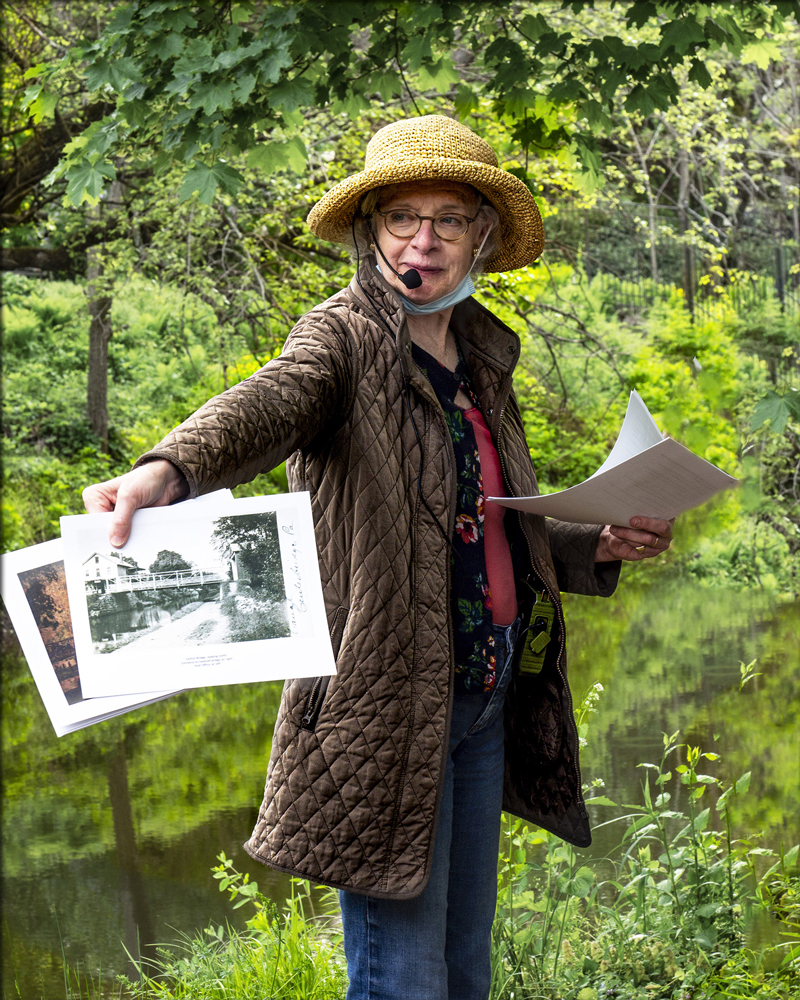Free DRGP Lecture
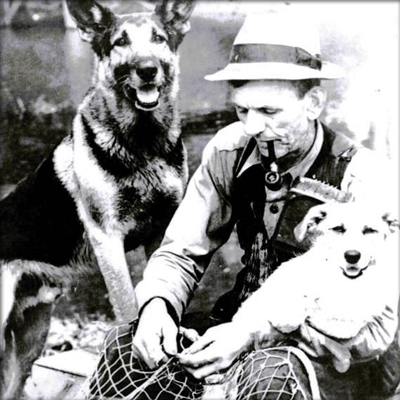
A Virtual Lecture by Steve Meserve,
Shad Fisherman & Captain of the Lewis Fishery
A Delaware River Heritage Lecture Sponsored by the Delaware River Greenway Partnership (DRGP)
Free Preregistration Required.
This virtual lecture will look at the 130-year-old fishery in Lambertville, NJ, the last of its kind on the Delaware River. If you drive over the New Hope-Lambertville Bridge in the early evening, often you will see volunteers with shad nets near the Fishery’s white fishing cottage seining for shad in the River. Learn about what things have changed with the Fishery, what has stayed the same, and where the things are headed for in the future.
Interesting Fact 1: The Lewis Fishery collects valuable data to share with regulatory agencies about their catches. Read the reports on the NJDEP website.
Interesting Fact 2: Several documentaries have been made about the Fishery including a feature episode of Bizarre Foods with Andrew Zimmern. Google “Philadelphia Shad Cakes Krak & Kishke” to view the show. Many stories have also been written about the history and operation of the Fishery. Read a www.njspotlight.com piece published in April.
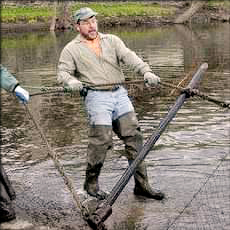 Bio
Bio
Steve is a fourth-generation shad fisherman and the captain of the Lewis Fishery in Lambertville, NJ. For 45 years he has been active in keeping the tradition and stewardship of the Fishery alive and relevant. Along with activities directly associated with the Fishery, he also shares his knowledge and experience by giving talks to groups ranging from scouts, college students, historic society members, and the Delaware River Basin Commission. Steve has also presented at the Smithsonian Folklife Festival. By day, Steve works in IT, currently as a business analyst.
_____________________________________________________________________________________________
This talk, one in a series, open to the public and free of charge, is sponsored by the Delaware River Greenway Partnership (DRGP) about different aspects of the cultural, recreational, and natural heritage of the Delaware River. An environmental nonprofit, DRGP supports the Delaware River Scenic Byway, the Lower Delaware Wild & Scenic River, the Delaware River Water Trail, and the Delaware River Heritage Trail.
Registration Link: https://outdoors.zoom.us/meeting/register/tZYvce2gqzssH9zL5rs5O0Lr20k_iEqYs27D
After registering, meeting link information will appear below the lecture description. Registrants will also be emailed a confirmation and lecture reminders.
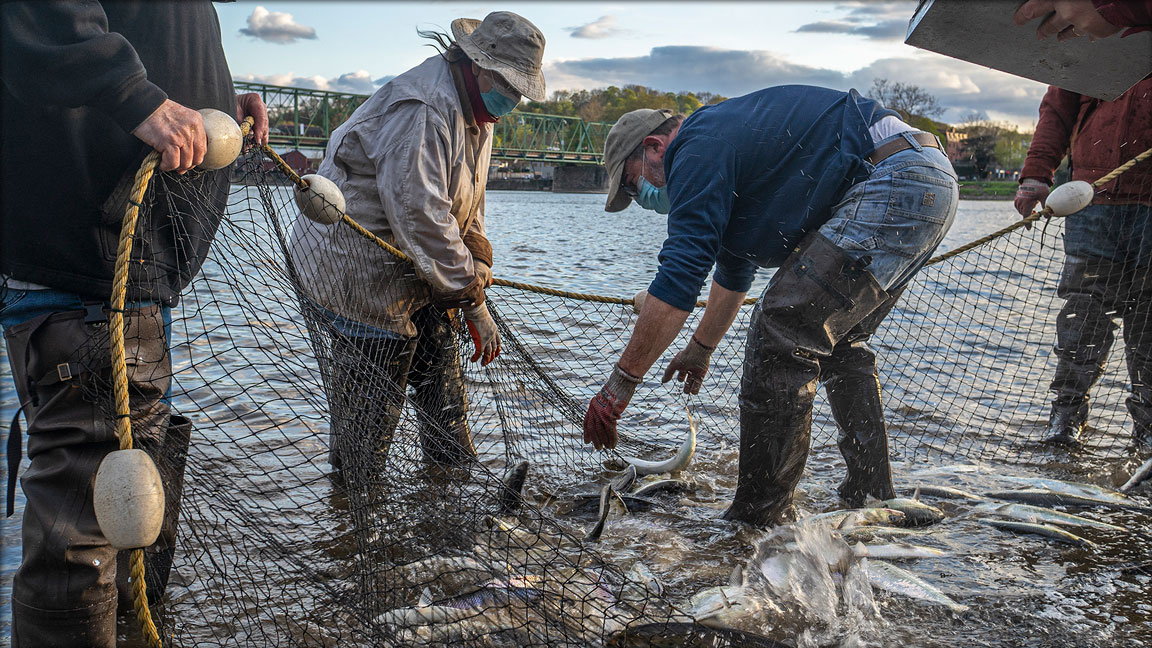
| Event Date | 10-26-2021 7:00 pm |
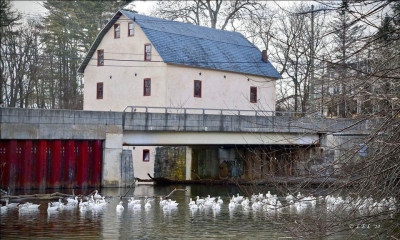
A Virtual Lecture by Dr. Alan Hunt,
Director of Policy and Grants, Musconetcong Watershed Association
A Delaware River Heritage Lecture Sponsored by the Delaware River Greenway Partnership (DRGP)
Free Preregistration Required.
“Geography is where history happens” -Mr. MacGinnis, History Teacher, North Hunterdon High School
Where people settle down and what they use the land and water for is often driven by geography. Rivers like the Delaware provided easier navigation and were important trade routes for Native Americans and Europeans. For smaller tributaries to the Delaware, like the Musconetcong River, where water navigation was more difficult, life was different. Glaciers, mountains, gorges, and mud were formidable transportation barriers. Swift moving water also provided the hydropower for small mills and those muddy, high-quality soils continue to be a boon to agriculture. Conquering the mountains also meant new transportation innovations, such as inclined planes for the Morris Canal, and tunnels for railroads. Many of these changes are represented in how the village of Asbury, the home of the Musconetcong Watershed Association, developed and keeps evolving. Join us on an exploration of how human land uses changed "up river", on the Musconetcong, and how those same geographic features influence life today.
Bio
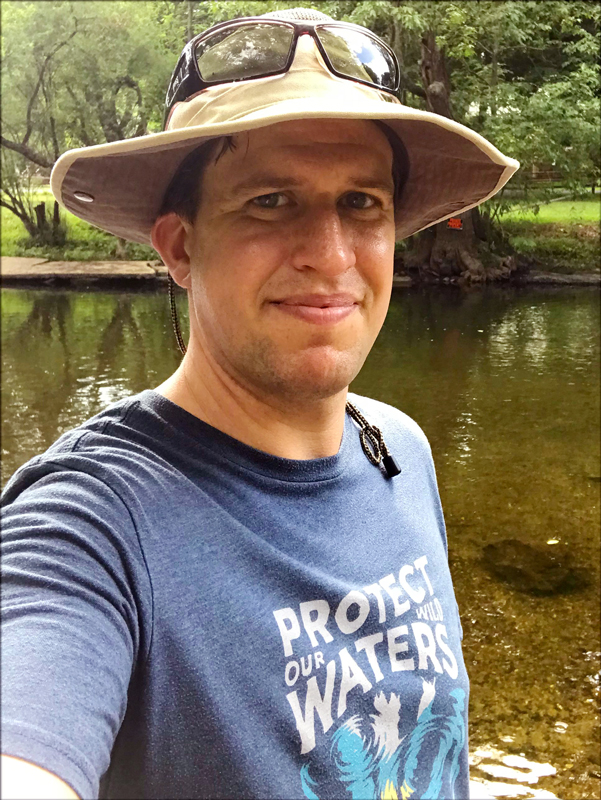 Alan R. Hunt, Ph.D., serves as the Musconetcong Watershed Association’s Director of Policy and Grants. This role includes acting as the River Administrator for the Musconetcong Wild and Scenic River and managing restoration and adaptive reuse for the Historic Asbury Mill. Currently, the MWA is developing its first Musconetcong Scenic and Recreational River National Park Service brochure, a watershed-wide interpretive plan, and is beginning the interpretive planning and exhibit design phase for the Asbury Mill’s Interpretive Center. As a native to the watershed, and growing up on a third-generation family farm, Alan’s perspective on people’s interaction with the land and water greatly inform his work, laying a foundation for how and why ecological restoration benefits water quality, wildlife habitat, and recreation
Alan R. Hunt, Ph.D., serves as the Musconetcong Watershed Association’s Director of Policy and Grants. This role includes acting as the River Administrator for the Musconetcong Wild and Scenic River and managing restoration and adaptive reuse for the Historic Asbury Mill. Currently, the MWA is developing its first Musconetcong Scenic and Recreational River National Park Service brochure, a watershed-wide interpretive plan, and is beginning the interpretive planning and exhibit design phase for the Asbury Mill’s Interpretive Center. As a native to the watershed, and growing up on a third-generation family farm, Alan’s perspective on people’s interaction with the land and water greatly inform his work, laying a foundation for how and why ecological restoration benefits water quality, wildlife habitat, and recreation
_____________________________________________________________________________________________
This talk, one in a series, open to the public and free of charge, is sponsored by the Delaware River Greenway Partnership (DRGP) about different aspects of the cultural, recreational, and natural heritage of the Delaware River. An environmental nonprofit, DRGP supports the Delaware River Scenic Byway, the Lower Delaware Wild & Scenic River, the Delaware River Water Trail, and the Delaware River Heritage Trail.
Registration Link: https://outdoors.zoom.us/webinar/register/WN_L0OLNWqqQXW0ycaZNIAEFw
After registering, meeting link information will appear below the lecture description. Registrants will also be emailed a confirmation and lecture reminders.
| Event Date | 03-15-2022 7:00 pm |
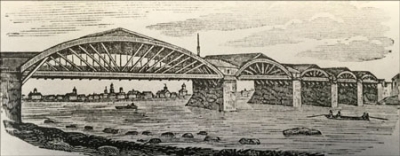
A Virtual Lecture by Joe Donnelly,
Deputy Executive Director of Communications, DRJTBC
A Delaware River Heritage Lecture Sponsored by the Delaware River Greenway Partnership (DRGP)
Free Preregistration Required.
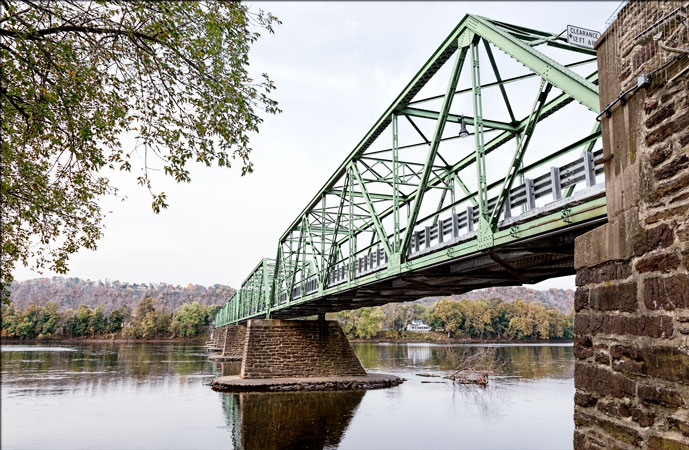 Bridges have spanned the Delaware River between New Jersey and Pennsylvania for more than 200 years. The fresh-water section of the river between the two states is particularly interesting, with some of the bridge crossings playing an important role in the nation’s transportation legacy. The history of the Delaware River’s NJ-PA freshwater bridges include early wooden structures, floods, fires, private stock-issuing companies, railroad barons, a trolley line, a free-bridges movement, and a new dual-span bridge with an attached shared-use path for pedestrians and bicyclists. Joe Donnelly, deputy executive director of the Delaware River Joint Toll Bridge Commission, will talk about the area’s Delaware River bridges – from the Delaware Water Gap to Trenton – with slides of historic photographs, news items, documents, and maps. 90 minutes
Bridges have spanned the Delaware River between New Jersey and Pennsylvania for more than 200 years. The fresh-water section of the river between the two states is particularly interesting, with some of the bridge crossings playing an important role in the nation’s transportation legacy. The history of the Delaware River’s NJ-PA freshwater bridges include early wooden structures, floods, fires, private stock-issuing companies, railroad barons, a trolley line, a free-bridges movement, and a new dual-span bridge with an attached shared-use path for pedestrians and bicyclists. Joe Donnelly, deputy executive director of the Delaware River Joint Toll Bridge Commission, will talk about the area’s Delaware River bridges – from the Delaware Water Gap to Trenton – with slides of historic photographs, news items, documents, and maps. 90 minutes
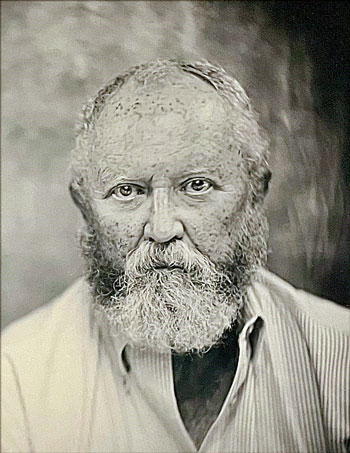 Joe Donnelly became the Delaware River Joint Toll Bridge Commission’s deputy executive director of communications in February 2008 after handling communications in the New Jersey General Assembly and working as a reporter for The Record of Bergen County, NJ. A Lambertville resident, he has endeavored to research and chronicle the various river crossings owned or operated by the Commission. The research spans the development of privately owned covered-wooden toll bridges in the 19th century, the advent of a free bridges movement in the early 20th century, and the evolution of the Bridge Commission after rising volumes of combustion-engine-powered vehicles forced construction of larger highway bridges in the 1930s and 1950s. Mr. Donnelly gives periodic presentations on the Commission’s river crossings to community groups, libraries, and historical organizations up and down the river.
Joe Donnelly became the Delaware River Joint Toll Bridge Commission’s deputy executive director of communications in February 2008 after handling communications in the New Jersey General Assembly and working as a reporter for The Record of Bergen County, NJ. A Lambertville resident, he has endeavored to research and chronicle the various river crossings owned or operated by the Commission. The research spans the development of privately owned covered-wooden toll bridges in the 19th century, the advent of a free bridges movement in the early 20th century, and the evolution of the Bridge Commission after rising volumes of combustion-engine-powered vehicles forced construction of larger highway bridges in the 1930s and 1950s. Mr. Donnelly gives periodic presentations on the Commission’s river crossings to community groups, libraries, and historical organizations up and down the river.
_____________________________________________________________________________________________
This talk, one in a series, open to the public and free of charge, is sponsored by the Delaware River Greenway Partnership (DRGP) about different aspects of the cultural, recreational, and natural heritage of the Delaware River. An environmental nonprofit, DRGP supports the Delaware River Scenic Byway, the Lower Delaware Wild & Scenic River, the Delaware River Water Trail, and the Delaware River Heritage Trail.
Registration Link: https://outdoors.zoom.us/webinar/register/WN_PZF-8tqeQNukEriVcboV0Q
After registering, meeting link information will appear below the lecture description. Registrants will also be emailed a confirmation and lecture reminders.
| Event Date | 04-12-2022 7:00 pm |
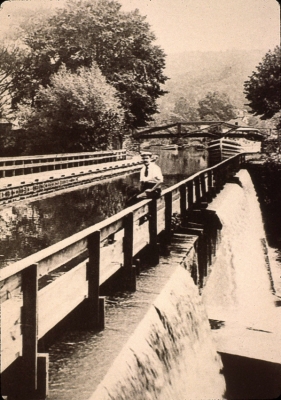
A Virtual Lecture by Susan Taylor
A Delaware River Heritage Lecture Sponsored by the Delaware River Greenway Partnership (DRGP)
Free Preregistration Required.
The Delaware Canal has lured photographers from the time that cameras came into use. Using an assemblage of photos ranging from the era when mules pulled cargo-laden boats to today when the Canal can be a scenic wonder, Susan Taylor will share stories of the canal’s past and hopes for its future.
The 58.9-mile-long canal, extending from the Forks of the Delaware in Easton to the tidewater in Bristol, will be illustrated with old postcard views, some then-and-now images to compare-and-contrast, canal and river vistas, and shots of the best and worst of nature.
Bio
Susan Taylor had the pleasure and challenge of being the Executive Director of the non-profit Friends of the Delaware Canal for over 30 years. Walking the full-length of the canal each year, leading guided tours, developing interpretive signs, and meeting so many people has allowed her to develop a rich knowledge of the canal and its surroundings.
_____________________________________________________________________________________________
This talk, one in a series, open to the public and free of charge, is sponsored by the Delaware River Greenway Partnership (DRGP) about different aspects of the cultural, recreational, and natural heritage of the Delaware River. An environmental nonprofit, DRGP supports the Delaware River Scenic Byway, the Lower Delaware Wild & Scenic River, the Delaware River Water Trail, and the Delaware River Heritage Trail.
Registration Link: https://outdoors.zoom.us/webinar/register/WN_mcQGamAMR-Sl4maPO2Ff_Q
After registering, meeting link information will appear below the lecture description. Registrants will also be emailed a confirmation and lecture reminders.
| Event Date | 10-25-2022 7:00 pm |
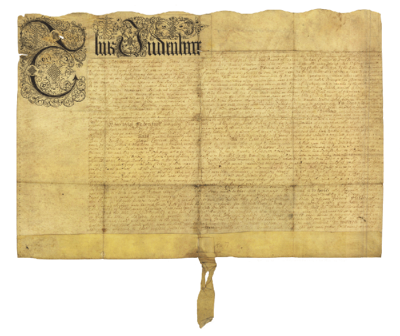
A Virtual Lecture by Joseph A. Grabas, CTP, NTP
A Delaware River Heritage Lecture Sponsored by the Delaware River Greenway Partnership (DRGP)
Free Preregistration Required.
The ability to own land in fee without obligation to feudal lords and kings was one of the driving forces behind the settlement and development of the original thirteen colonies. In 1609 the Wild West started at the New Jersey shoreline. To escape the tenancies and servitudes of the Old World, Europeans came to the American shores for the promise of land and self-determination.
John Steinbeck opined that, “If a man owns a little property, that property is him, it's part of him, and it's like him. If he owns property only so he can walk on it and handle it and be sad when it isn't doing well, and feel fine when the rain falls on it, that property is him, and some way he's bigger because he owns it. Even if he isn't successful he's big with his property. That is so.”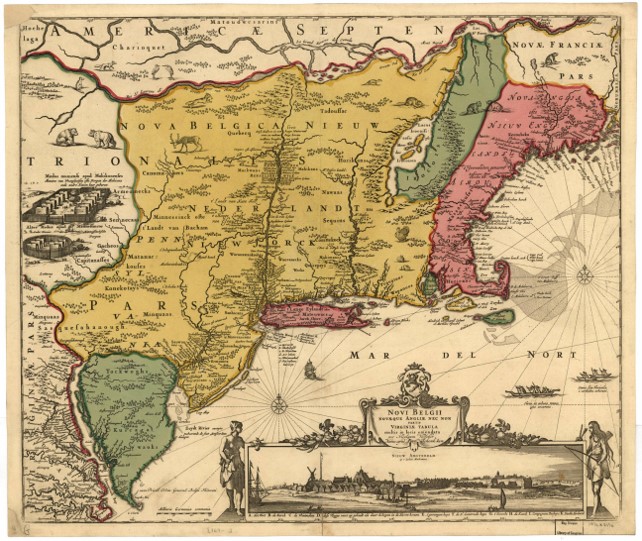 It was this desire that stoked the fires of settlement in the Delaware Valley in the 17th and 18th centuries. The land on either side of the Delaware River and Bay was prized for its fertile soil, temperate climate, and system of waterways which charted the original highways into this relative wilderness. Those waterways created natural boundaries amongst the land. Control and ownership of those waterways was as important as the land itself. Water for consumption, for irrigation, for power, for travel and for sustenance was key to success in the new world.
It was this desire that stoked the fires of settlement in the Delaware Valley in the 17th and 18th centuries. The land on either side of the Delaware River and Bay was prized for its fertile soil, temperate climate, and system of waterways which charted the original highways into this relative wilderness. Those waterways created natural boundaries amongst the land. Control and ownership of those waterways was as important as the land itself. Water for consumption, for irrigation, for power, for travel and for sustenance was key to success in the new world.
Ownership of the water and the land under it would forge the fates of our forebearers. Joe Grabas, nationally credited land title professional, 44-year veteran of the land title industry and member of the New Jersey Tidelands Resource Council will discuss water rights and boundaries along the Delaware River Valley, beginning with the earliest deeds through to the most recent conflicts (New Jersey v. Delaware, 552 U.S. 597 (2008)) and the inherent right of the sovereign to control lands now or formerly flowed by the tide.
Bio
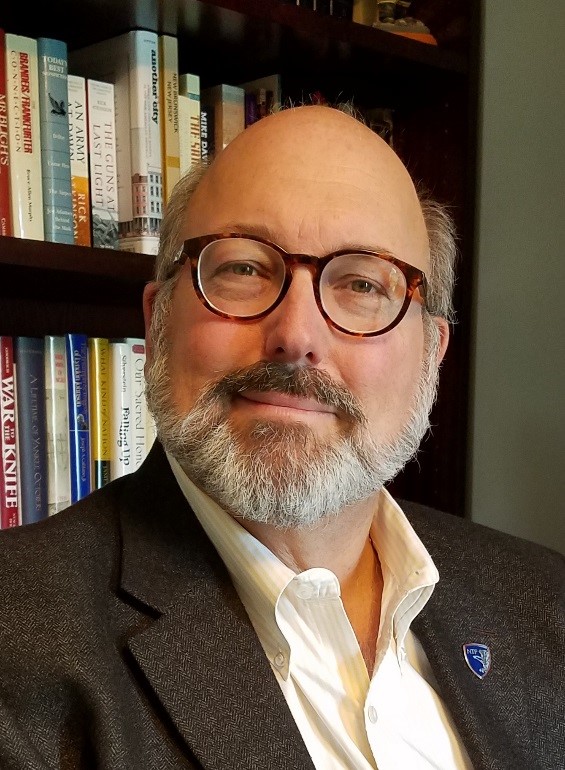 Joe Grabas is a professional educator, forensic title expert, and 44-year veteran of the title industry. Mr. Grabas was one of the first five individuals in the nation to be recognized by the American Land Title Association as a National Title Professional. He has searched, examined and/or closed over 100,000 land titles and provided professional students with over 10,000 hours of Continuing Education throughout the United States over the last four decades. He was awarded a Master’s degree in History from Monmouth University, where his emphasis was on historical land document interpretation. His research focuses on Historic Land Titles, the history of the NJ Land Recording System, Slavery in New Jersey, Free African American communities, Colonial & State Boundary development, and the Colonial and Antebellum history of New Jersey. He is the author of the award-winning book, Owning New Jersey: Historic Tales of War, Property Disputes & the Pursuit of Happiness.
Joe Grabas is a professional educator, forensic title expert, and 44-year veteran of the title industry. Mr. Grabas was one of the first five individuals in the nation to be recognized by the American Land Title Association as a National Title Professional. He has searched, examined and/or closed over 100,000 land titles and provided professional students with over 10,000 hours of Continuing Education throughout the United States over the last four decades. He was awarded a Master’s degree in History from Monmouth University, where his emphasis was on historical land document interpretation. His research focuses on Historic Land Titles, the history of the NJ Land Recording System, Slavery in New Jersey, Free African American communities, Colonial & State Boundary development, and the Colonial and Antebellum history of New Jersey. He is the author of the award-winning book, Owning New Jersey: Historic Tales of War, Property Disputes & the Pursuit of Happiness.
_____________________________________________________________________________________________
This talk, one in a series, open to the public and free of charge, is sponsored by the Delaware River Greenway Partnership (DRGP) about different aspects of the cultural, recreational, and natural heritage of the Delaware River. An environmental nonprofit, DRGP supports the Delaware River Scenic Byway, the Lower Delaware Wild & Scenic River, the Delaware River Water Trail, and the Delaware River Heritage Trail.
Registration Link: https://outdoors.zoom.us/webinar/register/WN_OzcGzsg0TgmvJojhAq5gFg
After registering, meeting link information will appear below the lecture description. Registrants will also be emailed a confirmation and lecture reminders.
| Event Date | 12-01-2022 7:00 pm |



